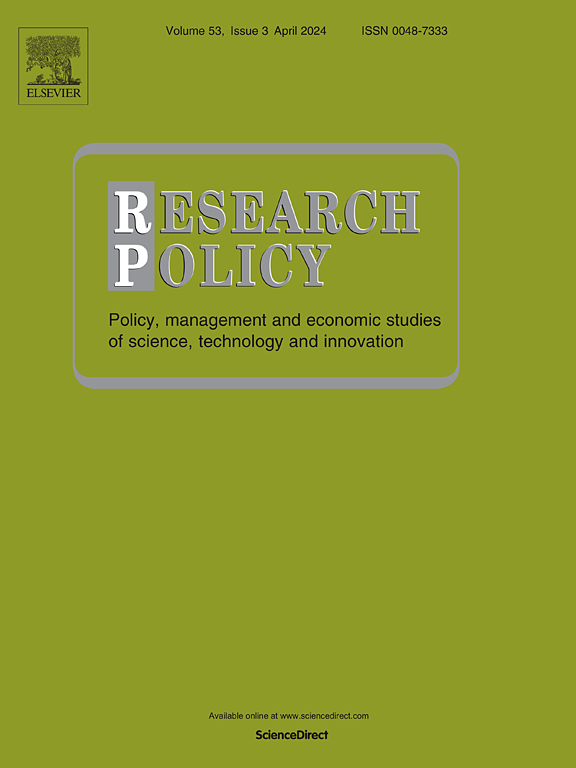基于审计的评价是否减少了学者的创造性行为?关系实践与人口特征的调节作用
IF 8
1区 管理学
Q1 MANAGEMENT
引用次数: 0
摘要
以标准化质量控制为特征的审计评价对学者创新行为的影响在现有文献中是模糊的。本文基于对中国科学院60个研究所509名学者的调查数据,运用多层次回归分析方法对审计评价的效果进行实证研究。研究发现:审计评价对创新行为的促进作用较低,但超过一定阈值后,表现出抑制作用。这种反u型效应随着关系实践的增加而减弱,拐点向右偏移。此外,处于关系网络边缘的学者,女性或年轻学者,从基于审计的评估中获益更多。研究结果揭示了研究评价对异质群体创新行为的影响机制,并为国内外的研究评价提供了政策启示。本文章由计算机程序翻译,如有差异,请以英文原文为准。
Does audit-based evaluation reduce academics' creative behavior? The moderating effect of guanxi practice and population characteristics
The effect of audit-based evaluation, which is characterized by standardized quality control, on academics' creative behaviors is ambiguous in the existing literature. Based on survey data collected from 509 academics among 60 research institutes in the Chinese Academy of Sciences, this paper applies multi-level regression analysis and empirically investigates the effect of audit-based evaluation. The main findings are: Audit-based evaluation promotes creative behavior at a low level, but after exceeding a certain threshold, it exhibits a depressing effect. Such an inverse U-shaped effect is weakened and the turning point shifts to the right by increased guanxi practice. Moreover, academics at the fringe of guanxi networks, females or juniors, benefit more from audit-based evaluation. These findings unveil the mechanism through which research evaluation affects creative behavior in heterogeneous groups among academics, and provide policy-related implications to research evaluation in both China and the world.
求助全文
通过发布文献求助,成功后即可免费获取论文全文。
去求助
来源期刊

Research Policy
MANAGEMENT-
CiteScore
12.80
自引率
6.90%
发文量
182
期刊介绍:
Research Policy (RP) articles explore the interaction between innovation, technology, or research, and economic, social, political, and organizational processes, both empirically and theoretically. All RP papers are expected to provide insights with implications for policy or management.
Research Policy (RP) is a multidisciplinary journal focused on analyzing, understanding, and effectively addressing the challenges posed by innovation, technology, R&D, and science. This includes activities related to knowledge creation, diffusion, acquisition, and exploitation in the form of new or improved products, processes, or services, across economic, policy, management, organizational, and environmental dimensions.
 求助内容:
求助内容: 应助结果提醒方式:
应助结果提醒方式:


